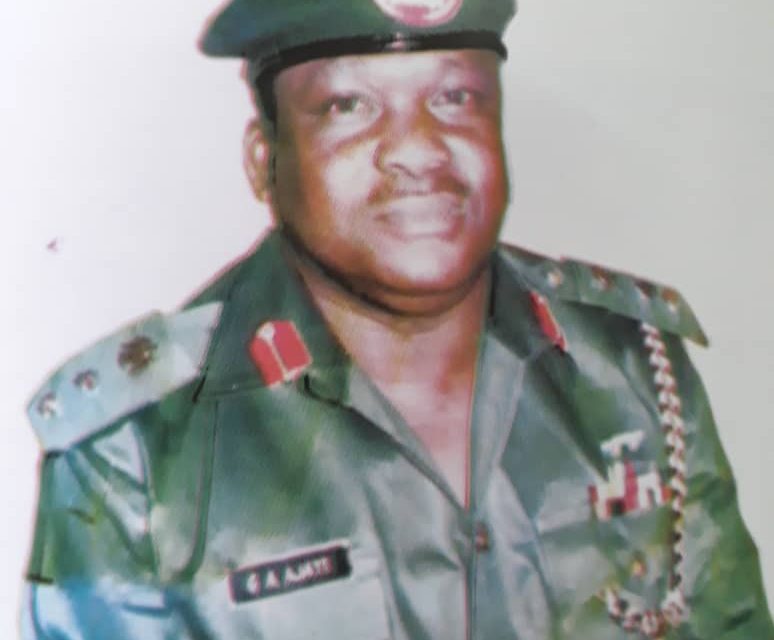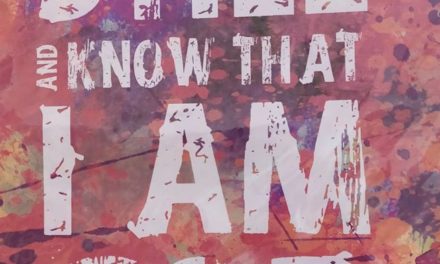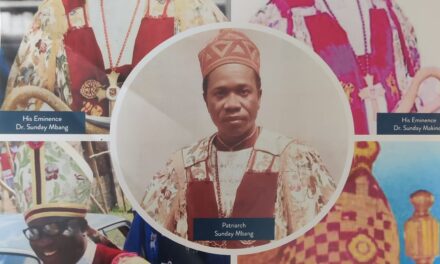When gallantry and devotion to duty displayed by officers like late Colonel Adetunji Gabriel Ajayi, an Ijesha-born infantry officer failed to reflect great credit upon them and exemplify the high traditions of the Nigerian military service, it suggests a failed nation. Colonel Ajayi, a notable old student of Atakumosa High School, Osu, Osun Sate, under the tutelage of the late Chief Adebayo Adefarati ‘fell into a state constructed trap and evil plan,’ was ‘arrested with maximum force, charged with maximum offence and locked up in what one could term maximum security prison,’ for the crime he did not commit. Indeed, any government system has the potentials of finding you guilty of treason you know nothing about. For example, Ajayi said, “General Sani Abacha tricked the winner of the June 12 Presidential election, Chief M.K.O Abiola and immorally usurped the mandate given to the chief by the Nigerian electorate. It was common knowledge that there was neither a coup nor an attempted one in 1995 but an attempt to silence perceived opposition voices in and outside the Nigerian military.” Writing his memoirs of 1995 coup on the 10th Anniversary of his release from unjust incarceration in Minna prisons and death sentence passed on him on July 14, 1995 by the Brigadier General Patrick Aziza’s Special Military Tribunal (SMT), Col Ajayi saw hell in prison. Ajayi was sentenced to death by firing squad along side former President Olusegun Obasanjo, the late Major General Musa Yar’Adua, and Colonel Gwadabe, among others on the accusation of planning to overthrow General Sani Abacha. The death sentence was subsequently commuted to 25 years jail term.
Ajayi, a former second-in-command to the General Officer Commanding, GOC, Lagos Garrison Command, General Ishaiya Bamaiyi was released from prison and retired from the Army on March 4, 1999. Life was not the same for Colonel Ajayi after his release, ‘his psyche has been badly affected … his mind runs a marathon race between anger, desperation and disgust,’ and on a sad not the military politicking characterised the tail end of his Army career. Col Ajayi said, “I still carry the scars of the injuries sustained physically on my body. For me, life can never be the same again. I daily carry the pain, horror, nightmare and inhumanity I experienced in that prison.’ In his book titled, End of the Road: The Travail of An Infantry Officer, Col Ajayi expressed ‘the magnitude of trauma he went through, maintaining categorically that despite the fact that the incident happened over 15 years ago, he finds it very difficult to outlive the deep wound inflicted upon his soul.’ 23 years after, Col Ajayi died in sorrow because the government failed to do the only thing to make him happy. Ajayi said, “The only thing government could do to make him happy with the system was for his ‘compulsory retirement’ to be reversed and his normal rank at discharge (major-general) be effected.” Ajayi who served Nigeria for all the useful part of his life in crisis ‘felt like going to war seeing that perpetrators of injustice against him and others were not only unrepentant but that they could boldly yearn at Oputa Panel, for an opportunity to do same again.’ To Ajayi, the problem that put Nigeria in shambles is ‘… because ‘we did not suffer to become independent in the first instance.’
To move Nigeria forward, Ajayi as ‘a victim of injustice’ reminds us that ‘injury to a soul does not vanish easily’ hence, the need for us ‘to come to terms with the past so that we can unchain the present and free the future.’ Ajayi said, “People that had been wronged, Nigerian government failed to seize the opportunity of the golden jubilee, to do justice and reconcile with them. All you hear people talk about is, “Put him in jail.” And they say so with impunity. The policy government makes is attacking a section of the people and favouring a section. Government policies must be made to favour all the beneficiaries. Because of one man, God can favour a nation. Look at South Africa’s Nelson Mandela, because of him alone, see what happened to that country. Favour all through! Find me a man in Nigeria God can say, ‘because of him, I am favouring this country’. I am not saying we need Nelson Mandela in Nigeria. No. We need a Nigerian but, really, we have to think about justice and reduce our greed.”
Ajayi was unhappy till his death early this month. He suffered so much in prison confinement for four years under the harshest condition and according to him, “I almost went mad and I came out and somebody is saying, “Oh, forget the past and let’s move forward.” Where are we moving forward to, when I cannot even see clearly? How can I move forward? Ajayi’s bitterness is about the corrupt government system that kills devotion. On the Phantom coup, Ajayi said, “The truth of the matter is that it was not true that I planned a coup. And I was never part of any because nobody even told me there was one. When Obasanjo was military Head of State and Commander-in-Chief, where was I such that he would now descend so low to say he wanted to team up with me to stage a coup? By virtue of Obasanjo’s popularity in the international community, if he wanted a change of government, he needed not stressing it because whatever he says is respected globally. I can only tell you how I began to sense that I was in danger and leave the rest for you and other Nigerians to go and see in my book, “End of the Road: The Travails of an Infantry Officer.” On February 25, 1995, I saw the Intelligence Officer of 26 Infantry Battalion coming to change the guards in my house in Ikoyi for no reason. I queried the officer but he claimed that the Commander (Gen. Ishaya Bamaiyi) asked him to do so. I was surprised because I did not know when it became the responsibility of the Commander to start detailing guards to officers’ quarters. I did not have a premonition of an impending doom ahead of me. The following day, Sunday, February 26, I went to worship at St. Paul’s Military Church, Dodan Barracks with my family. It was usual for me to do so. I attended the same service together with Major General Ishaya Bamaiyi who, in the evening of that day, ordered my illegal and unlawful arrest for an offence I knew nothing about. We had participated in the Holy Communion service, both of us knelt down together at the altar of Jesus Christ to eat the Lord’s Supper and, unknown to me, my name was in his pocket among those already condemned for alleged coup plotting. That was all I saw.” Ajayi was jailed, punished and died in lamentation for the offence he did not commit. He said, “For God’s sake, I did not commit any crime. But it has not been possible for government to run back to that punishment and annul the conviction. Why give me compulsory retirement? It is still a punishment because it was an offence I did not commit that I was tried and imprisoned for. I didn’t plot any coup. Nobody told me they were plotting one. So it was just a fabrication. Why is it difficult in Nigeria for justice to be properly done?”
Ajayi is dead for the crime he did not commit thereby carried with him to his grave ‘the library of iniquities perpetrated under that dark era.’ In death, Col Ajayi is saying to the government, “I want government to restore the status quo. Remove the stain. This is what I need. There was a time I needed to do a clearance and they were asking why I was compulsorily retired, not voluntarily retired. Then I had to start defending myself. The questions I am asking is why is it difficult to retract this compulsory retirement. We had issues. Capt. Driphus was accused falsely of treason. He was sent to the Devil’s Island of Guyana. He spent some years in Guyana and when they discovered that he was not guilty as accused, they brought him back to the service and restored him to the rank he was before his imprisonment. He served and was promoted up to a brigadier such that he fought in the Second World War. It makes the service to be robust when somebody is punished falsely for an offence he knows nothing about and upon discovery of his innocence you take him back to his normal rank … And I say that the system cannot survive if it continues to harbor injustice … the point remains that, I cannot be happy if the situation remains like this without a total reversal of the whole thing.”
Ajayi was a graduate of the University of Ibadan, Nigerian Defence Academy, Fellow International Institute for Professional Security, College of Combat, Mhow, India, Basic School of Infantry and Tactics Quetta, Pakistan among others. He was part of the United Nations Interim Peace Keeping Force UNIFIL, Lebanon, ECOMOG Operations in Sierra Leone and Liberia and his last Unit was the Service Headquarters, Lagos Garrison Command. Kindly spread the awareness:
JUSTICE FOR COLONEL AJAYI:
RESTORE HIS RANK











Recent Comments